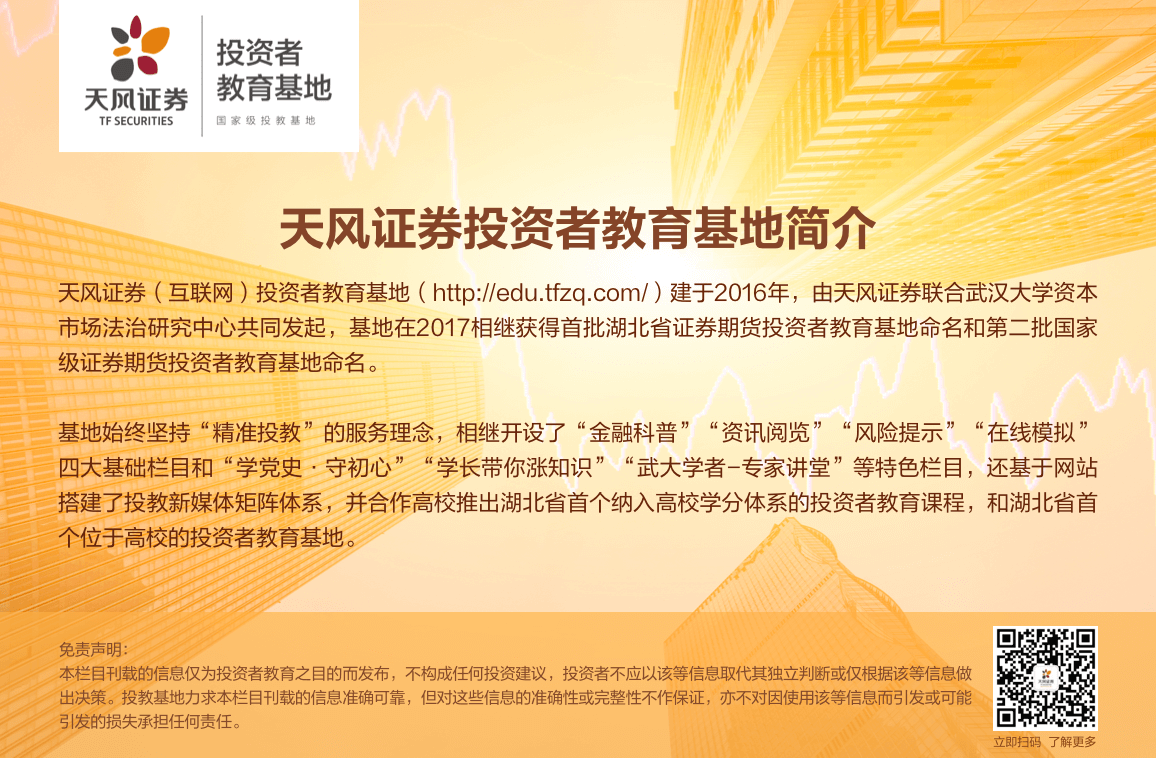
中国最近的政策举措与:(1)滴滴出行上市和对其数据使用的控制,(2)中国的教育公司被转型为非营利组织相关,这些都引发了人们对中国市场经济和资本市场的许多质疑,所以我想帮助澄清这是怎么回事。
我知道这让不了解情况的人很困惑。自从36年前我第一次到中国,我发现大多数没有直接接触政策制定者和不了解政策调整模式细节的西方观察家倾向于不相信中国政府利用资本市场促进发展的做法是真实的。他们将最近的两次行动解释为中国政府不遵循市场机制的一面,尽管在过去的40年里,发展资本市场的市场经济的趋势是如此强烈,企业家和资本所有者变得富有。因此,他们错过了中国正在发生的事情,可能还会继续错过。就滴滴事件而言,政策制定者向滴滴表示,继续上市可能不是最好的,他们希望解决数据隐私问题,这是可以理解的。就教育公司而言,他们想减少教育不平等和家庭的负担。这些家庭非常想让自己的孩子获得教育服务,但又难以承担教育培训的费用。他们相信这些调整对国家更好,即使股东们有自己的看法。
我记得有许多类似的误解。例如,我记得中国散户投资者遭遇股市异常波动,政府开始购买股票稳定市场,然后试图稳定市场一段时间。我还记得2015年至2016年中国央行扩大汇率浮动区间,人民币大幅贬值,许多投资者将这些视为政策制定者正在远离发展资本市场的证据。一些持怀疑态度的投资者将这些举措视为不恰当的自由市场干预,尽管同样的举措在许多资本主义市场发生过多次,尽管美国和其他发达市场的财政和货币政策干预令中国政府对其市场的干预相形见绌。在整个过程中,中国的政策制定者都成功地应对了影响,并实现了自己的目标;也就是说,他们的行动方向从未改变。他们一直支持资本市场的快速稳定发展、企业家精神和对外国投资者的投资开放。所以我鼓励你们关注趋势,不要误解和过度关注波动。
要想了解发生了什么,你需要了解中国是社会主义市场经济制度,这意味着国有资本是为了大多数人的利益,政策制定者不会让资本市场和资本所有者阻碍他们做他们认为对大多数人最有利的事情。相反,资本市场中的参与者和资本所有者必须了解他们在金融体系中的从属地位,否则他们将为自己的错误买单。例如,他们不应当把拥有财富误认为是拥有决定事情发展的权力。
你还需要了解,在这个快速发展的资本市场环境中,中国监管机构正在制定适当的监管措施,因此,当监管措施变化迅速且不明确时,这会导致此类波动,可能会被误解为不遵循市场机制的举措。
此外,你需要了解全球地缘政治环境的变化会导致一些变化。你可以从美国政府的政策转变中看到这一点,比如:a)改变中国公司在美国上市的政策,b)威胁禁止美国养老基金在中国投资。
可以假设将来会发生这样的事情,并据此进行相应的投资。但不要将这些波动误解为趋势性变化,也不要期望中国社会主义市场经济与西方资本主义一模一样。
话虽如此,但我确实认为,政策制定者就此事与市场沟通的相对较少,引发了一些市场波动。
至于投资,在我看来,美国和中国的体系和市场既有机会也有风险,而且很可能相互竞争,互相促成多元化。因此,它们都应被视为个人投资组合的重要组成部分。我敦促你们不要误解这些走势,认为它们是过去几十年存在的趋势的逆转,不要让它们把你们吓跑。
附:原文
Understanding China’s Recent Moves in Its Capital Markets
Recent Chinese policy moves related to 1) DiDi’s listing and controls on its data usage and 2) China’s education companies being converted into non-profits have created a lot of doubt about capitalism and capital markets in China, so I’d like to help clarify what’s going on there.
I understand that it’s confusing to people who are not close to what’s happening. Since I started going to China 36 years ago, I have found that most Western observers who do not have direct contact with policy makers’ and don’t follow in detail the patterns of the changes have tended to not believe that the Chinese Communist Party’s usage of capital markets to foster development is real. They interpret moves like these two recent ones as the Communist Party leaders showing their true anti-capitalist stripes even though the trend over the last 40 years has clearly been so strongly toward developing a market economy with capital markets, with entrepreneurs and capitalists becoming rich. As a result, they’ve missed out on what’s going on in China and probably will continue to miss out. In this case the policy makers signaled to DiDi that it might not be best to go ahead with the listing and they understandably want to deal with the data privacy issue. In the case of the educational tutoring companies they want to reduce the educational inequality and the financial burden on those who are desperate to have their children have these services but can’t afford them by making them broadly available. They believe that these things are better for the country even if the shareholders don’t like it.
I remember a number of such analogous misinterpretations. For example, I remember how the Chinese retail investor bubble bursting led to government stock buying and then the government trying to manipulate the market for a while. Also I remember the Chinese currency plunge in 2015-16 resulting from the PBoC widening the band and how that led to many investors pointing to these developments as evidence that policy makers were turning away from developing capital markets. Some skeptical investors looked at these moves as inappropriate anti-free market interventions even though these same moves happened many times in many capitalist markets and even though the fiscal and monetary policy interventions in the U.S. and other developed markets dwarf the Chinese government interventions in its markets. Through it all Chinese policy makers successfully managed the fallout and pursued their goals; i.e., the direction of their actions never changed. It has been in support of a fast and steady development of capital markets, entrepreneurship, and openness to investment to foreign investors. So I encourage you to look at the trends and not misunderstand and over-focus on the wiggles.
To understand what’s going on you need to understand that China is a state capitalist system which means that the state runs capitalism to serve the interests of most people and that policy makers won’t let the sensitivities of those in the capital markets and rich capitalists stand in the way of doing what they believe is best for the most people of the country. Rather, those in the capital markets and capitalists have to understand their subordinate places in the system or they will suffer the consequences of their mistakes. For example, they need to not mistake their having riches for having power for determining how things will go.
You also need to understand that in this rapidly developing capital markets environment Chinese regulators are figuring out appropriate regulations so, when they are changing fast and aren’t clear, that causes these sorts of confusions, which can be misconstrued to be anti-capitalist moves.
Also, you need to understand that the global geopolitical environment changing leads to some changes. You can see that reflected in the U.S. governments’ policy shifts such as a) changing its policies about Chinese companies’ listings in the United States and b) threats to prohibit American pension funds from investing in China.
Assume such things will happen in the future and invest accordingly. But don’t misinterpret these wiggles as changes in trends, and don’t expect this Chinese state-run capitalism to be exactly like Western capitalism.
Having said that, I do think that it is unfortunate that Chinese policy makers don’t publicly communicate the reasoning behind their moves more clearly.
As for investing, as I see it the American and Chinese systems and markets both have opportunities and risks and are likely to compete with each other and diversify each other. Hence they both should be considered as important parts of one’s portfolio. I urge you to not misinterpret these sorts of moves as reversals of the trends that have existed for the last several decades and let that scare you away.
◇免责声明◇
本报告是机密的,仅限天风证券股份有限公司(简称“本公司”)的客户使用,本公司不会因接收人收到本报告而视其为客户。
本报告是基于合法取得的已公开的资料或信息撰写,本公司对这些信息的准确性、完整性、可靠性和及时性不做任何保证。本报告中的观点、数据、图表等信息仅供参考,不构成所涉证券买卖的出价或询价。本报告所载的分析意见、评估及预测仅为本报告出具日的观点和判断。过往表现亦不作为日后表现的预示和担保,在任何情况下均不构成投资建议。该等意见、评估及预测无需通知即可随时更改。在不同时期,本公司可能会发出与本报告所载意见、评估及预测不一致的研究报告。客户应自行承担投资风险,不应以本报告取代其独立判断或仅根据本文作出决策。市场有风险,投资需谨慎。
本报告的版权归本公司所有,本公司保留所有权利,未经本公司事先书面许可,任何机构和个人均不得以任何形式翻版、复制、引用或转载,否则,本公司将保留随时追究其法律责任的权利。
来源:天风晨曦交易观点











